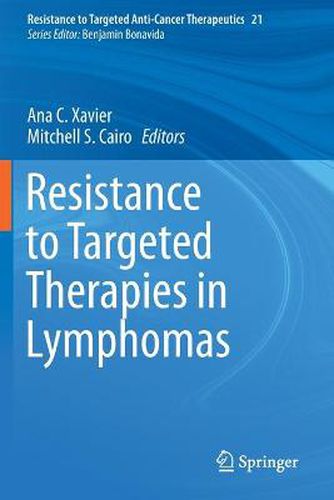Readings Newsletter
Become a Readings Member to make your shopping experience even easier.
Sign in or sign up for free!
You’re not far away from qualifying for FREE standard shipping within Australia
You’ve qualified for FREE standard shipping within Australia
The cart is loading…






This title is printed to order. This book may have been self-published. If so, we cannot guarantee the quality of the content. In the main most books will have gone through the editing process however some may not. We therefore suggest that you be aware of this before ordering this book. If in doubt check either the author or publisher’s details as we are unable to accept any returns unless they are faulty. Please contact us if you have any questions.
Over the past few decades, lymphoma patient outcomes have improved as a result of multidrug chemotherapy and radiation therapy, intensification of treatment, improvement in supportive care, and better imaging and staging systems. Even more recently, there has been tremendous progress in the understanding of cancer cell biology and its microenvironment which has resulted in the development of biologic agents, also called target therapies. These therapies are more specific in targeting cancer cells either directly or via enhancement of the immune system. Many clinical studies have focused on biological agents in combination with traditional chemotherapy with the goal of improved outcomes, or reduced acute long term complications that are associated with lymphoma therapy.
This volume will review different classes of target drugs that have been developed, approved, or are under investigation in the field of lymphoma therapy. The discussion will not only be on the understanding of the mechanisms of action or clinical response of those agents, but will also help the reader to understand the nature of lymphoma biology in patients who relapse or are refractor after exposure to those drugs.
Contributors will discuss what is currently known about mechanisms of tumor-related or host-related resistance, and how to overcome this resistance. This understanding is crucial given the dismal outcomes of patients with relapsed or refractory lymphomas. The book provides a unique opportunity to review and reflect on the recent successes and pitfalls of the modern lymphoma therapy era.
$9.00 standard shipping within Australia
FREE standard shipping within Australia for orders over $100.00
Express & International shipping calculated at checkout
This title is printed to order. This book may have been self-published. If so, we cannot guarantee the quality of the content. In the main most books will have gone through the editing process however some may not. We therefore suggest that you be aware of this before ordering this book. If in doubt check either the author or publisher’s details as we are unable to accept any returns unless they are faulty. Please contact us if you have any questions.
Over the past few decades, lymphoma patient outcomes have improved as a result of multidrug chemotherapy and radiation therapy, intensification of treatment, improvement in supportive care, and better imaging and staging systems. Even more recently, there has been tremendous progress in the understanding of cancer cell biology and its microenvironment which has resulted in the development of biologic agents, also called target therapies. These therapies are more specific in targeting cancer cells either directly or via enhancement of the immune system. Many clinical studies have focused on biological agents in combination with traditional chemotherapy with the goal of improved outcomes, or reduced acute long term complications that are associated with lymphoma therapy.
This volume will review different classes of target drugs that have been developed, approved, or are under investigation in the field of lymphoma therapy. The discussion will not only be on the understanding of the mechanisms of action or clinical response of those agents, but will also help the reader to understand the nature of lymphoma biology in patients who relapse or are refractor after exposure to those drugs.
Contributors will discuss what is currently known about mechanisms of tumor-related or host-related resistance, and how to overcome this resistance. This understanding is crucial given the dismal outcomes of patients with relapsed or refractory lymphomas. The book provides a unique opportunity to review and reflect on the recent successes and pitfalls of the modern lymphoma therapy era.